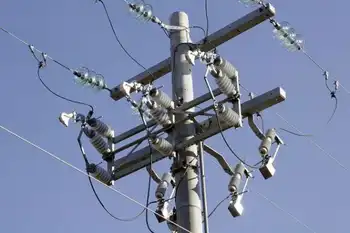Japanese Win Cut In Coal Price
TOKYO -- - Already under pressure from the stronger dollar and soaring freight rates, the Australia export steaming coal producers must now deal with a 7 per cent price cut following a scene-setting settlement in Japan.
If the $US2 a tonne price cut becomes the norm, the industry's revenues will take a $330 million hit in the year ahead, with the pain felt most by Rio Tinto, Xstrata, Anglo American, MIM and BHP Billiton. That comes on top of the $600 million in revenue forgone because of the rise in the dollar from US53c to US60.4c in the past 12 months. The industry's competitive position in its key northern Asian markets is also under pressure because of surging freight rates in response to nervousness in shipping lanes because of the war in Iraq. The triple-whammy on the local operations raises the prospect that the industry will need to make lasting production cuts to offset the impact of Chinese exports at a time of slowing demand, brought on by sluggish global economic growth. With their share prices being whipped around, the locally listed producers have kept quiet about the pressure on their steaming coal operations. And they will stay that way until their individual settlements in the price-setting Japanese market force them to report the size of their own price cuts and the impact on profits and business plans to the stock exchange. This year is the first time that price-setting in Japan has been on an individual basis with the power utilities. Previously, a reference price was set and all other contract prices followed, allowing for quality differences. That is why analysts cautioned yesterday that the $US2 a tonne cut that Tohoku Electric Power has extracted from unnamed Australian suppliers cannot be applied to all other contracts in the Japanese market. Greg Dean-Jones, coal analyst at Sydney minerals research house AME Mineral Economics, said yesterday that as the reference price system effectively had become a dead duck, ``everyone will now be trying to do better''. The death of the reference price system started last year and was highlighted by an early settlement by Chubu Electric at $US31.85 a tonne being whittled away to an effective 2002 reference price of $US28.75 a tonne. Tohoku's settlement for 2003 shipments was $US26.75 a tonne. While the Australian suppliers keep quiet on what has been happening in the price negotiations, the Japanese trade publication Tex said yesterday that the interest now was in whether prices for the other electricity utilities would be fixed at lower than that for Tohoku. It noted that the spot market (about 30 per cent of the total market) remained on the skids, with a sale out of Newcastle for delivery in the third quarter booked at $US22.95 a tonne. It said that if Australian suppliers made only small and time-limited production cuts, Chinese and Indonesian suppliers would be given the upper hand. It's not just thermal coal price. As previously reported, there is enough anecdotal evidence around to suggest that prices for coking coal shipments to Japan's steelmakers in 2003 prices have also been cut by about $US2 a tonne.
That comes on top of the $600 million in revenue forgone because of the rise in the dollar from US53c to US60.4c in the past 12 months.
The industry's competitive position in its key northern Asian markets is also under pressure because of surging freight rates in response to nervousness in shipping lanes because of the war in Iraq.
The triple-whammy on the local operations raises the prospect that the industry will need to make lasting production cuts to offset the impact of Chinese exports at a time of slowing demand, brought on by sluggish global economic growth.
With their share prices being whipped around, the locally listed producers have kept quiet about the pressure on their steaming coal operations.
And they will stay that way until their individual settlements in the price-setting Japanese market force them to report the size of their own price cuts and the impact on profits and business plans to the stock exchange.
This year is the first time that price-setting in Japan has been on an individual basis with the power utilities. Previously, a reference price was set and all other contract prices followed, allowing for quality differences.
That is why analysts cautioned yesterday that the $US2 a tonne cut that Tohoku Electric Power has extracted from unnamed Australian suppliers cannot be applied to all other contracts in the Japanese market.
Greg Dean-Jones, coal analyst at Sydney minerals research house AME Mineral Economics, said yesterday that as the reference price system effectively had become a dead duck, ``everyone will now be trying to do better''.
The death of the reference price system started last year and was highlighted by an early settlement by Chubu Electric at $US31.85 a tonne being whittled away to an effective 2002 reference price of $US28.75 a tonne. Tohoku's settlement for 2003 shipments was $US26.75 a tonne.
While the Australian suppliers keep quiet on what has been happening in the price negotiations, the Japanese trade publication Tex said yesterday that the interest now was in whether prices for the other electricity utilities would be fixed at lower than that for Tohoku.
It noted that the spot market (about 30 per cent of the total market) remained on the skids, with a sale out of Newcastle for delivery in the third quarter booked at $US22.95 a tonne. It said that if Australian suppliers made only small and time-limited production cuts, Chinese and Indonesian suppliers would be given the upper hand.
It's not just thermal coal price. As previously reported, there is enough anecdotal evidence around to suggest that prices for coking coal shipments to Japan's steelmakers in 2003 prices have also been cut by about $US2 a tonne.
Related News

Doug Ford ‘proud’ of decision to tear up hundreds of green energy contracts
TORONTO - Ontario Premier Doug Ford said Thursday he is “proud” of his decision to tear up hundreds of renewable energy deals, a move that his government acknowledges could cost taxpayers more than $230 million.
Ford dismissed criticism that his Progressive Conservatives are wasting public money, telling a news conference that the cancellation of 750 contracts signed by the previous Liberal government will save cash.
“I’m so proud of that,” Ford said of his decision. “I’m proud that we actually saved the taxpayers $790 million when we cancelled those terrible, terrible, terrible wind turbines that really for the last 15 years have…




